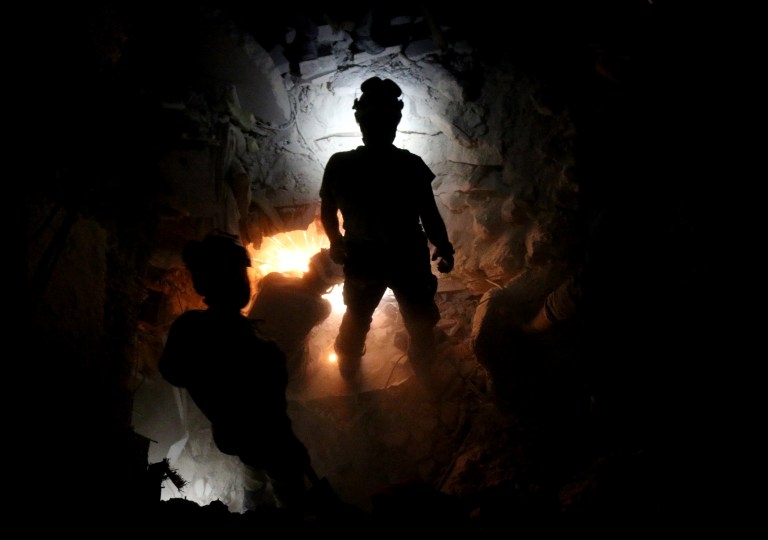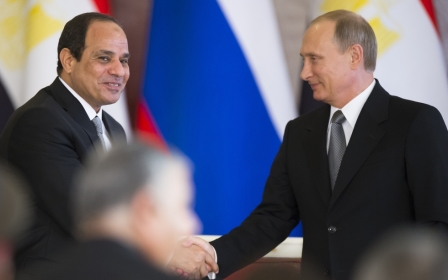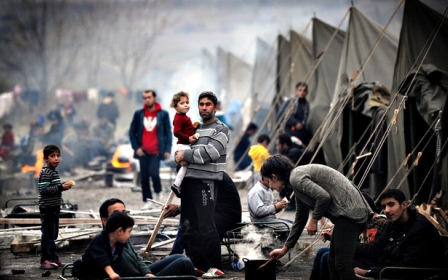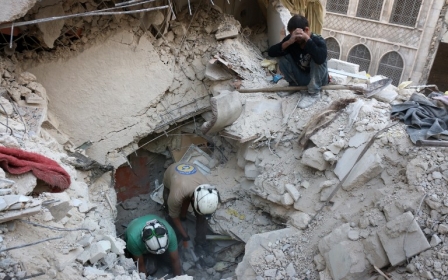The one question that can save our war-ridden world

A new set of discussions have started with Brexit. No matter what you call it - the “post-World War II order,” the “Bretton Woods system”, or the “Global North axis” - it would be accurate to say that the departure of the UK from the EU is the first critical overturning this century of the world order established last century.
Nobody has time to answer 'what must be done?,' because everybody is busy answering 'how does it look?'
Brexit may also be viewed as a regional reflection of the global political impasse. In this period in which the outdated world order of the 20th century descends into crisis, there is nothing surprising about strategies that seek exit rather than search for solutions.
If all exits were like the Britain-EU divorce, we would not think that the current global absence of politics was a serious problem. However, in the age of globalisation, in which the circulation of capital, goods and labour has soared, we see Westphalian sovereignty metamorphosing into a seemingly outdated populism.
Wrong question, wrong answers
As centrifugal political, social and economic forces gain strength, joint efforts to find solutions almost everywhere in the world turn less productive with each passing day because the wrong question is being asked.
Rather than “how does it look to others?” - the politically correct question of the "liberal" world - the question should be “what must be done?”
These two questions, namely "what must be done" and "how does it look" in fact, belong to two separate worlds. These questions determine your attitude in the face of a crisis, a problem or an obstacle. The former produces politics, while the latter nurtures enmity against politics.
Both questions may be posed about a problem, but the sequencing and the hierarchical relationship between them are inevitable – and that is the crux of the matter.
One need not go back further than the politics of the past decade to see that it is essentially a story of who determines the prioritisation of these questions and in what manner.
The revolutionary question
The question of “what must be done?” is, in a sense, revolutionary. It does not provide you with any convenient meanings and always leaves you with the feeling that you prefer the most difficult and troublesome path.
Its disclosed destination is certain. It allows you to sense even the tiniest deviations instantly, so it requires determination. It saves norms from the amorphous world, transforming them into decisions.
With this question, the realms of undecidedness and ambiguity narrow as much as possible. Whether the content of a decision is active or passive does not change the end result. The decision, sometimes, is made to wage the bloodiest and, the most passionate battles, but often with the utmost patience.
The extent of neutrality narrows as well. More precisely, it saves one from neutrality which is an effort in vain. It clears the way for one to appear as you believe and believe as you appear, and provides one with courage. There are not many accidents or falls, but risks are plenty. However, the potential to recover from all three of them, in the fastest way, is quite high, albeit with injuries.
Having said that, the question of “what must be done?” is a political one. It is realistic. Its answer is pluralistic, a kaleidoscopic of positions. It rapidly transforms preferences into decisions. Justice prevails in due time if possible.
It enables an exception to be valued deservedly. Exceptions prove the rule and the rules gain meaning in this way; and there is an opportunity to establish the rule of law and produce social contracts.
It requires transparency. No hidden agendas are allowed. It produces expediency and pays regard to the change of reason on the basis of decisions. It literally lives in the present. It does not fall into anachronisms through a crisis of political and historical jetlag. It believes that we all die in the “long run”.
The reputational question
The question of “how does it look,” on the other hand, is an anti-political question if it is the first question one asks when confronted with a political crisis. It starts with the transfer of will. It holds a passive position and is apologetic in character.
Since its hidden subject is “according to whom?,” the answer is provided by someone else and it is often predictably the same party or individual complying with current global mainstream "standards".
“How does it look?” is the question of those who do not want to commit to a political stance in the first place. It only saves the day and kills tomorrow. It escapes the present, but cannot build the future either.
When you just consider the last decade, it is not difficult to discover the power of the “how does it look?” camp and the inability, on the other hand, of the “what must be done?” group. From global institutions to strong countries, from regional cooperation organisations to international institutions in different sectors, a widespread vicious cycle is being experienced.
Nobody has time to answer “what must be done?,” because everybody is busy answering “how does it look?” Since the liberal perspective’s primary question “how does it look?” has declared global victory, a cut-throat fight continues against the political. The powerful winds of the anti-political, generated by “how does it look?”, blow almost everywhere.
The death of politics
The wave of de-politicisation has naturally uncovered a state of paralysis experienced as a result of global crises.
As the world – with the exception of the West and the North - has experienced bloody times, terrorism, populism and nationalist tendencies, the trend to seek “other-than-the-political” exits in the face of crises has first generated a political exodus and then turned into tendencies for the self-euthanasia of politics.
As the British example has become an exit from a political and economic union, the Syria example has turned into an exodus from morality. As the support provided to the coup d’état in Egypt to crackdown on popular demands of change in the Arab world has become an exit from change, what else could the continuing massacre in Aleppo be if it is not an exit from humanity?
The US withdrawal from problem areas, termed “Amerexit,” has become an exit which has transformed into a global geopolitical problem. Similarly, Russia’s initial reaction to existing political problems has been one of military intervention, which leads to an exit from regional and global cooperation.
In brief, we are literally living in an age of exits. As long as the question of “How does it look?” continues to supersede “what must be done?”, such exits will increasingly and inevitably continue.
On the one hand, the global system is preoccupied by exits; and on the other, global terrorism comfortably shows its ability to enter the system. If the global absence of politics we experience is not stopped, the terror threat, created by those who ask themselves “what must be done?” and then answer for themselves will only rise in the foreseeable future.
At this point, it should be understood that the political engulfs all the answers that we are to provide for the existing problems, from the global economic crisis to the migration issue to the rightist populism rising as an answer to terrorism.
If the question of “What must be done?” is prioritised, a quick return to politics may be possible. The opposite scenario, bad enough as it is, has already come to pass.
- Taha Ozhan is a member of Turkish Parliament and chairman of the Foreign Affairs Committee. He is an academic and writer. Ozhan holds a PhD in Politics and International Relations. He frequently comments and writes for international media. His latest book is Turkey and the Crisis of the Sykes-Picot Order (2015). You can follow him on Twitter @TahaOzhan
The views expressed in this article belong to the author and do not necessarily reflect the editorial policy of Middle East Eye.
Photo: Syrian civil defence volunteers, known as the White Helmets, search for victims amid the rubble of destroyed buildings following a government forces air strike on the rebel-held neighbourhood of Bustan al-Basha in the northern city of Aleppo, on 4 October 2016 (AFP)
New MEE newsletter: Jerusalem Dispatch
Sign up to get the latest insights and analysis on Israel-Palestine, alongside Turkey Unpacked and other MEE newsletters
Middle East Eye delivers independent and unrivalled coverage and analysis of the Middle East, North Africa and beyond. To learn more about republishing this content and the associated fees, please fill out this form. More about MEE can be found here.





